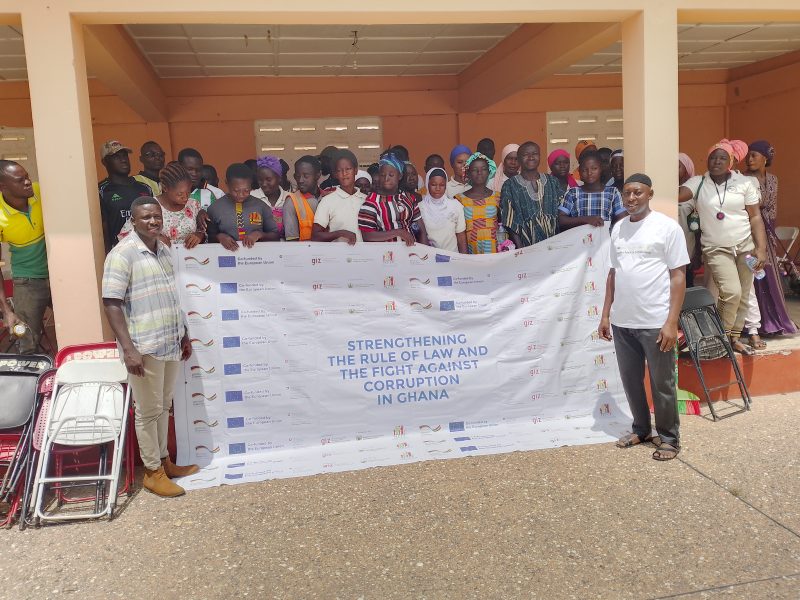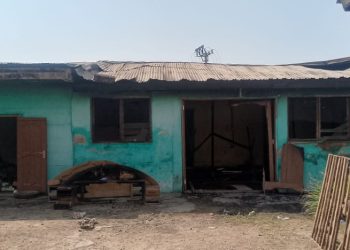
The National Commission for Civic Education (NCCE) in the Sawla-Tuna-Kalba District has organized a civic education engagement in the district capital, aimed at promoting the rule of law and strengthening the fight against corruption.
The program, dubbed “Rule of Law and the Fight Against Corruption,” is being implemented by the NCCE with funding support from GIZ and the European Union. It brought together representatives from various associations and youth groups across the Sawla-Tuna-Kalba District.
The engagement sought to raise awareness among citizens—especially young people—on issues related to corruption, the rule of law, the Whistleblower Act, and the Right to Information (RTI) Law. Participants were also educated on appropriate channels for reporting corrupt practices and seeking redress.
Addressing the media, Mr. Issahaku Losina, the District Director of NCCE, described the engagement as both “necessary and timely.” According to him, the lack of awareness among citizens has contributed to the misuse of public funds—resources that could otherwise have been used to build schools, health facilities, and other essential infrastructure.
He lamented that many people do not even recognize that paying or accepting bribes is a corrupt act. “This education has helped enlighten participants on the negative effects of bribery and why it must be stopped,” he emphasized.
Participants were also introduced to various institutions and mechanisms available for addressing corruption in Ghana.
The District Director of the Commission on Human Rights and Administrative Justice (CHRAJ), Mr. Mumin Gafar, expressed satisfaction with the engagement, noting that it has empowered citizens to ask critical questions and take an active interest in community accountability.
He, however, expressed concern about the low level of education on corruption at the grassroots. According to him, many citizens are unable to distinguish between perceived and actual corruption. “People often make wild allegations of corruption without understanding what truly constitutes it,” he explained.
Mr. Gafar called on all stakeholders, including CHRAJ and the NCCE, to intensify public education on corruption and accountability, especially at the community level, to help strengthen good governance and promote transparency in Ghana.
Source yagbonradioonline









